Irreducible Mind - Wikipedia
Irreducible Mind
From Wikipedia, the free encyclopedia
Jump to navigationJump to searchIrreducible Mind |
| Author | Edward F. Kelly
Emily Williams Kelly
Adam Crabtree
Alan Gauld
Michael Grosso
Bruce Greyson |
|---|
| Published | 2007 Rowman & Littlefield |
|---|
| Pages | 800 pp. |
|---|
| ISBN | 9780742547926 |
|---|
Irreducible Mind: Toward a Psychology for the 21st Century is a 2007 psychological book by Edward Francis Kelly, Emily Williams Kelly, Adam Crabtree, Alan Gauld, Michael Grosso, and Bruce Greyson.[1] It attempts to bridge contemporary cognitive psychology and mainstream neuroscience with "rogue phenomena", which the authors argue exist in near-death experiences, psychophysiological influence, automatism, memory, genius, and mystical states.[1]
The authors' approach repudiates the conventional theory of human consciousness as a material epiphenomenon that can be fully explained in terms of physical brain processes and advances the mind as an entity independent of the brain or body. They advance an alternative "transmission" or "filter" theory of the mind-brain relationship. In doing so they explain how dualism[disambiguation needed] may be a more fundamental theory that rejects a materialistic perspective of consciousness. Other books which advocate dualism like this book include “The Oxford Handbook of Psychology and Spirituality” published by Oxford University Press and “From the Knowledge Argument to Mental Substance: Resurrecting the Mind” published by Cambridge University Press and “Exploring Frontiers of the Mind-Brain Relationship” published by Springer.
Authors[edit]
The authorship of the book is diverse, with representatives from the United States, United Kingdom, and Canada.[2] The book is interdisciplinary in that the authors also come from various fields of psychology, science studies, and psychical research.[3] Lead author Edward F. Kelly is Professor of Research in the Division of Perceptual Studies at the University of Virginia School of Medicine.[4]
Contents[edit]
The book begins by presenting a brief overview of contemporary neuroscience followed by a summary of the approach to scientific psychology proposed by Frederic W. H. Myers. Myers (and William James) posited that a "true science of mind should seriously take into account all kinds of human experiences before prematurely accepting a theory of mind". Kelly argues that modern psychology has continued, contrary to the advise by Myers and James, to ignore phenomena from psychical research and religious experience simply because they don't fit into the prevalent views of mind.[2]
The book endorses phenomena related to psychosomatic medicine, placebo effects, near-death experiences, mystical experiences, and creative genius, to argue for a "strongly dualistic theory of mind and brain".[3] Irreducible Mind depicts the mind as an entity independent of the brain or body, with which it causally interacts and the death of which it survives.[3] The book "challenges neuroscientific reductionism"[5] as it argues that properties of minds cannot be fully explained by those of brains.[2]
The book is broken into 9 sections followed by an introductory bibliography on psychical research and 100 pages of references.
- Chapter 1: A View from the Mainstream: Contemporary Cognitive Neuroscience and the Consciousness Debates
- Chapter 2: F. W. H. Myers and the Empirical Study of the Mind-Body Problem
- Chapter 3: Psychophysiological Influence
- Chapter 4: Memory
- Chapter 5: Automatism and Secondary Centers of Consciousness
- Chapter 6: Unusual Experiences Near Death and Related Phenomena
- Chapter 7: Genius
- Chapter 8: Mystical Experience
- Chapter 9: Toward a Psychology for the 21st Century
Reception[edit]
Andreas Sommer writing in Journal of Mind and Behavior after providing a complete review of the book content, praised the work for its thoroughness in addressing its multidisciplinary subject and "a constructively critical and genuinely scientific tone and spirit" maintained by the authors throughout the work. Sommer argued that "the book has the potential to serve as an invaluable guide for psychologists and other scholars who are aware of the increasing crisis and lack of orientation within modern academic psychology."[6]
Critics writing in the American Journal of Psychology had a generally negative review of the work. They objected to some inaccuracies and omissions in the lead author's representation of history of physicalism. They also objected to what they see as lack of specifications in Edward F. Kelly's representation of the mind–body problem that the book's authors claim to offer a solution to, some ambiguities in their proposed dualist "receiver theory" of mind-brain interaction as well as ignoring plausible versions of the type identity theory that they refute in their work. The critics also highlight what they see as the authors' failure to elaborately cite empirical evidences from alleged paranormal phenomena to support their theory and instead referring readers for specifics of the evidence to the large bibliography of psychical literature listed in the book's appendix. They also pointed to the controversial nature of the psi phenomena and discounted the authors' references to them (such as near-death experiences) on the ground that they are anecdotal.[3]
Lead author Edward F. Kelly writing in the American Journal of Psychology in response to his critics stated that “the empirical inadequacies of physicalism are evident whether one takes the results of psychical research seriously or not” and that other phenomena discussed in the book such as psychophysiological influences and mystical experiences are enough to show that physicalism is false.[7]
The critics in their rejoinder found an irony in Kelly's justification for the shortcomings that they perceived in the historical background of the work considering the authors' inclusion of a CD-ROM copy of the Human Personality and Its Survival of Bodily Death by F.W.H. Myers as a companion to the book as well as having "a long chapter (by Emily Kelly) on the history of psi and related research since the 19th century." They insisted that the authors' too "broad and oversimplified" description of physicalism made it difficult to understand what specific doctrine is allegedly refuted by their empirical research.[8]
Clinical neurologist Sebastian Dieguez argued that the book is "painstakingly redundant, astoundingly arrogant in its claims and intents". Dieguez wrote that the authors of Irreducible Mind took reports of paranormal phenomena and wild claims at face value, utilized "quantum babble" and formed an ignorant "soul of the gaps" argument.[9]
Alexander Moreira-Almeida, reviewing the book in the Journal of Nervous and Mental Disease praised the authors "for their courage and scholarship in dealing with such a controversial topic" and presenting thought-provoking ideas for the mind-body problem while stating that a wider transcultural scope and views by experts in philosophy of science would have been also useful.[2]
Paul Marshal writing in Journal of Consciousness Studies described the book a monumental work with far-reaching revolutionary ambitions, "a heavyweight intellectual contribution that will be indispensable to those interested in late nineteenth-century reactions to scientific naturalism, to investigators of anomalous experiences, and to students of consciousness studies on the lookout for stimulating data and ideas."[5]
See also[edit]
References[edit]
- ^ Jump up to:a b Edward F. Kelly; Emily Williams Kelly; Adam Crabtree; Alan Gauld; Michael Grosso; Bruce Greyson (2007). Irreducible Mind: Toward a Psychology for the 21st Century. Rowman & Littlefield. ISBN 978-0-7425-4792-6. Retrieved 29 July 2013.
- ^ Jump up to:a b c d Alexander Moreira-Almeida. Book Review: Irreducible Mind Archived 2010-11-29 at the Wayback Machine. The Journal of Nervous and Mental Disease, Volume 196, Number 4, April 2008, pp. 345-346.
- ^ Jump up to:a b c d Mitchell G. Ash, Horst Gundlach, Thomas Sturm. Book Review: Irreducible Mind?. American Journal of Psychology, Volume 123, Number 2, Summer 2010, pp. 246-250
- ^ Edward Francis Kelly, Ph.D. Division of Perceptual Studies, University of Virginia.
- ^ Jump up to:a b Paul Marshall. Book Review: Irreducible Mind Archived 2010-11-23 at the Wayback Machine. Journal of Consciousness Studies, Vol. 14, No. 11, 2007, pp. 125-128.
- ^ Andreas Sommer. (2008). E. F. Kelly, E. W. Kelly, A. Crabtree, A. Gauld, M. Grosso, and B. Greyson: Irreducible Mind. Toward a Psychology for the 21st Century. Journal of Mind and Behavior, 29, pp. 359-370.
- ^ "Yes, Irreducible". The American Journal of Psychology. University of Illinois Press. 124 (1): 111. 2011. doi:10.5406/amerjpsyc.124.1.0111. ISSN 0002-9556.
- ^ Mitchell G. Ash, Horst Gundlach, Thomas Sturm. A Cross-Disciplinary Misunderstanding: Reply to Kelly. American Journal of Psychology, Volume 124, Number 1, Spring 2011, p. 112
- ^ Dieguez, Sebastian. (2008). The Soul of the Gaps. (Review of Irreducible Mind: Toward a Psychology for the 21st Century by Edward F. Kelly, Emily Williams Kelly, Adam Crabtree, Alan Gauld, Michael Grosso, and Bruce Greyson). Skeptic 15: 75-77.
External links[edit]
| hide |
|---|
|
| Topics | |
|---|
| Active organizations | |
|---|
| Defunct organizations | |
|---|
| People | |
|---|
| Publications | |
|---|
|
==
Irreducible Mind: Toward a Psychology for the 21st Century 1st Edition
by Edward Kelly (Author), Emily Williams Kelly (Author)
4.4 out of 5 stars 187 ratings
14 New from AUD 43.33 7 Used from AUD 54.89 1 Rentals from AUD 36.60 1 Collectible from AUD 56.28
New (23) from AUD 36.60
See All Buying Options
Available at a lower price from other sellers that may not offer free Prime shipping.
Current mainstream opinion in psychology, neuroscience, and philosophy of mind holds that all aspects of human mind and consciousness are generated by physical processes occurring in brains. Views of this sort have dominated recent scholarly publication. The present volume, however, demonstrates empirically that this reductive materialism is not only incomplete but false. The authors systematically marshal evidence for a variety of psychological phenomena that are extremely difficult, and in some cases clearly impossible, to account for in conventional physicalist terms. Topics addressed include phenomena of extreme psychophysical influence, memory, psychological automatisms and secondary personality, near-death experiences and allied phenomena, genius-level creativity, and 'mystical' states of consciousness both spontaneous and drug-induced. The authors further show that these rogue phenomena are more readily accommodated by an alternative 'transmission' or 'filter' theory of mind/brain relations advanced over a century ago by a largely forgotten genius, F. W. H. Myers, and developed further by his friend and colleague William James. This theory, moreover, ratifies the commonsense conception of human beings as causally effective conscious agents, and is fully compatible with leading-edge physics and neuroscience. The book should command the attention of all open-minded persons concerned with the still-unsolved mysteries of the mind.
Read less
Frequently bought together
Irreducible Mind: Toward a Psychology for the 21st Century+Beyond Physicalism: Toward Reconciliation of Science and Spirituality+Living in a Mindful Universe: A Neurosurgeon's Journey into the Heart of Consciousness
Total price:AUD 131.05
Add all three to Cart
Some of these items ship sooner than the others.
Show details
This item: Irreducible Mind: Toward a Psychology for the 21st Century
by Edward Kelly
Paperback
AUD 53.32
Beyond Physicalism: Toward Reconciliation of Science and Spirituality
by Edward F. Kelly
Paperback
AUD 52.26
Living in a Mindful Universe: A Neurosurgeon's Journey into the Heart of Consciousness
by Eben Alexander
Paperback
AUD 25.47
Customers who viewed this item also viewedPage 1 of 8Page 1 of 8
Previous page
Beyond Physicalism: Toward Reconciliation of Science and Spirituality
Beyond Physicalism: Toward Reconciliation of Science and Spirituality
Edward F. Kelly
4.3 out of 5 stars 39
Paperback
AUD52.26
Get it as soon as Tuesday, Dec 14
AUD 23.31 shipping
Only 10 left in stock - order soon.
Living in a Mindful Universe: A Neurosurgeon's Journey into the Heart of Consciousness
Living in a Mindful Universe: A Neurosurgeon's Journey into the Heart of…
Eben Alexander
4.6 out of 5 stars 421
Paperback
AUD25.47
AUD 15.82 shipping
In stock soon.
The Map of Heaven: How Science, Religion, and Ordinary People Are Proving the Afterlife
The Map of Heaven: How Science, Religion, and Ordinary People Are Proving the Afterlife
Eben Alexander
4.4 out of 5 stars 1,121
Paperback
126 offers from AUD 1.44
The Conscious Mind: In Search of a Fundamental Theory (Philosophy of Mind)
The Conscious Mind: In Search of a Fundamental Theory (Philosophy of Mind)
David J. Chalmers
4.4 out of 5 stars 196
Paperback
56 offers from AUD 8.45
After: A Doctor Explores What Near-Death Experiences Reveal about Life and Beyond
After: A Doctor Explores What Near-Death Experiences Reveal about Life and Beyond
Bruce Greyson M.D.
4.6 out of 5 stars 944
Hardcover
68 offers from AUD 14.00
Next page
What other items do customers buy after viewing this item?Page 1 of 5Page 1 of 5
Previous page
Beyond Physicalism: Toward Reconciliation of Science and Spirituality
Beyond Physicalism: Toward Reconciliation of Science and Spirituality
Edward F. Kelly
4.3 out of 5 stars 39
Paperback
AUD52.26
Get it as soon as Tuesday, Dec 14
AUD 23.31 shipping
Only 10 left in stock - order soon.
Living in a Mindful Universe: A Neurosurgeon's Journey into the Heart of Consciousness
Living in a Mindful Universe: A Neurosurgeon's Journey into the Heart of…
Eben Alexander
4.6 out of 5 stars 421
Paperback
AUD25.47
AUD 15.82 shipping
In stock soon.
The Map of Heaven: How Science, Religion, and Ordinary People Are Proving the Afterlife
The Map of Heaven: How Science, Religion, and Ordinary People Are Proving the Afterlife
Eben Alexander
4.4 out of 5 stars 1,121
Paperback
126 offers from AUD 1.44
The Conscious Mind: In Search of a Fundamental Theory (Philosophy of Mind)
The Conscious Mind: In Search of a Fundamental Theory (Philosophy of Mind)
David J. Chalmers
4.4 out of 5 stars 196
Paperback
56 offers from AUD 8.45
After: A Doctor Explores What Near-Death Experiences Reveal about Life and Beyond
After: A Doctor Explores What Near-Death Experiences Reveal about Life and Beyond
Bruce Greyson M.D.
4.6 out of 5 stars 944
Hardcover
68 offers from AUD 14.00
Next page
Special offers and product promotions
Create your FREE Amazon Business account to save up to 10% with Business-only prices and free shipping.
Editorial Reviews
Review
pp. 153 of Proof of Heaven: A Neurosurgeon's Journey into the Afterlife, Simon & Schuster, 2012
For those still stuck in the trap of scientific skepticism, I recommend the book Irreducible Mind: Toward a Psychology for the 21st Century, published in 2007. The evidence for out-of-body consciousness is well presented in this rigorous scientific analysis. Irreducible Mind is a landmark opus from a highly reputable group, the Division of Perceptual Studies, based at the University of Virginia. The authors provide an exhaustive review of the relevant data, and the conclusion is inescapable: these phenomena are real, and we must try to understand their nature if we want to comprehend the reality of our existence.
-- Eben Alexander III, MD, Neurosurgeon and author of Proof of Heaven and The Map of Heaven
The authors have not only plausibly argued that the empirical and conceptual horizon of science, particularly the science of the human mind, is both capable and in dire need of expansion, but―and I use this strong term deliberately―they have proven it. -- Andreas Sommer, junior research fellow in history and philosophy of science, Churchill College, University of Cambridge, Journal Of Mind and Behavior
[A] comprehensive review of empirical evidence that questions the assumption that 'properties of minds will ultimately be fully explained by those of brains.'. . . Kelly et al. deserve to be praised for their courage and scholarship in dealing with such a controversial topic. -- Alexander Moreira-Almeida Harold Koenig, Duke University, Journal Of Nervous and Mental Disease
Thoroughly scientific, systematically reasoned and courageous. . . as exciting and enjoyable as it is provocative and profound! -- David J. Hufford, Professor Emeritus of Humanities and Psychiatry, Penn State College of Medicine
Irreducible Mind is an enormous and daring enterprise. Its scholarship is impressive. . . and made me think long and hard about many issues. -- Etzel Cardeña, Professor of Psychology, Lund University, PsycCRITIQUES
[A] must-read for anyone working in consciousness studies, psychology and the history of science. -- Jonathan Edelman, Oxford University
[A] monumental work. . . . Only a very resistant observer will remain unpersuaded that a proportion, as least, of all this carefully evaluated data presents a significant challenge to conventional views. -- Paul Marshall, PhD, BSc, RGN, RMN, Journal of Consciousness Studies
[A] sustained, sophisticated, and empirically based critique of contemporary cognitive psychology and mainstream neuroscience. . . the implications for the study of mind, consciousness, and religion border on the unspeakable. -- Jeffrey J. Kripal, Rice University, Religious Studies Review
[B]rilliant, heroic and astonishing . . . a scientifically rigorous and philosophically informed critique of various contemporary orthodoxies in mainstream psychology, especially the idea that the human mind (including consciousness and our sense of free will and personal agency) is nothing more than a material entity and can be fully explained in terms of brain processes. -- Richard A. Shweder, Harold Higgins Swift Distinguished Service Professor, Department of Comparative Human Development, University of Chicago
Irreducible Mind [is] yet another book on the mind-body problem. However, this book is different, very different, from all the rest... In the future history of the science of mind, Irreducible Mind may well prove a book of landmark significance, one that helped spark a revolution in the scientific investigation of the nature of consciousness... In the arena of neuroscience of mind, it is the most exciting reading to have crossed my path in years. -- David E. Presti, Professor of Neurobiology, University of California-Berkeley, Professor of Neurobiology, University of California-Berkeley
Irreducible Mind is well written, detailed, and passionately argued, and should be central to parapyschology for some years to come. Its great value is that it helps to close the gap between the conventional view of mind on the one hand, and on the other, responsible research into phenomena which are utterly antithetical to that view. In that sense, it greatly advances the process that Myers began more than a century ago, but was so rudely interrupted by behaviourism and the virtual outlawing of consciousness as a scientific entity., Journal of the Society for Psychical Research, July 2009
The author's sincerity and the extent of their labors are beyond question., American Journal of Psychology, Summer 2010
About the Author
Edward F. Kelly is currently research professor in the Department of Psychiatric Medicine at the University of Virginia. He is author of Computer Recognition of English Word Senses and Altered States of Consciousness and Psi: An Historical Survey and Research Prospectus. His central long term interests revolve around mind-brain relations and functional neuroimaging studies of unusual states of consciousness and associated cognitive phenomena. Emily Williams Kelly is currently research assistant professor in the Department of Psychiatric Medicine at the University of Virginia. Adam Crabtree is currently on the faculty of the Centre for Training in Psychotherapy, Toronto. Alan Gauld is a retired reader in psychology, School of Psychology, University of Nottingham, as well as past president of the Society for Psychical Research. Bruce Greyson is the Chester F. Carlson Professor of Psychiatry and director of the Division of Perceptual Studies at the University of Virginia. Michael Grosso, though nominally retired, is currently teaching at the University of Virginia's School of Continuing Education. He is currently a director of the American Philosophical Practitioner's Association and Review Editor of the Journal of Philosophical Practice.
Product details
ASIN : 1442202068
Publisher : Rowman & Littlefield Publishers; 1st edition (November 16, 2009)
Language : English
Paperback : 832 pages
ISBN-10 : 9781442202061
ISBN-13 : 978-1442202061
Item Weight : 2.85 pounds
Dimensions : 6.11 x 1.89 x 9.09 inches
Best Sellers Rank: #101,828 in Books (See Top 100 in Books)
#5 in Logic (Books)
#19 in Medical Psychology Research
#27 in Neuropsychology (Books)
Customer Reviews: 4.4 out of 5 stars 187 ratings
Videos
Help others learn more about this product by uploading a video!
Upload video
How would you rate your experience shopping for books on Amazon today?
Very poor Neutral Great
Customer reviews
4.4 out of 5 stars
4.4 out of 5
187 global ratings
5 star
67%
4 star
18%
3 star
7%
2 star
3%
1 star
4%
How are ratings calculated?
Review this product
Share your thoughts with other customers
Write a customer review
Sponsored
Read reviews that mention
william james irreducible mind near death kindle version edward kelly quantum mechanics death experiences psi phenomena years ago human personality mystical experience cognitive neuroscience henry stapp mind-body problem must read near-death experiences empirical evidence emily kelly mind and the brain highly recommend
Top reviews
Top reviews
Top reviews from the United States
Rach67
5.0 out of 5 stars A Must Have For Any Seeker
Reviewed in the United States on January 10, 2020
Verified Purchase
I bought this book several years ago after reading a Near Death Account by Dr. Ebin Alexander. I’ve spent my entire life immersed in science as a biology teacher and had reached a point in which after a lifetime of trauma I considered myself Agnostic. I could not confirm nor would I deny the existence of God though I certainly was opposed (and still am) to traditional religious beliefs. I’ve always been very spiritual but could not buy into the narratives presented by most religions. Then I faced yet another horrific tragedy. In 2012 my 22 year old gifted son shot himself in the head in my home without any warning. This further cemented my belief that there is no God acting in our lives. However, slowly over a period of years I had so many unexplainable experiences and mystic experiences that I could not deny that my path was being directed. There were just too many “random” encounters to have statistically been considered random. This still occurs today. I’ve been in a spiritual awakening. This book came into my life as part of that awakening. I’m a scientist. I needed evidence. I literally had no idea that such a volume of research existed as is shared in this text. I just want to note that this book is not bedside reading. It is 800 pages of graduate level scientific research on the topic of continued consciousness or what some might call life after death. Much of this research stems out of the University of Virginia so it is academic in nature. The book compiles research on Near Death Experiences, Death Bed Visions, Mystic experiences, genius and more. I used it as reference in my own book that I hoped would help parents devastated by the loss of a child to suicide. This book was both literally and figuratively a God send. I will never try to persuade someone to adhere to my spiritual beliefs, not only because I am the first to profess that I nor anyone else truly knows all of the truth, but because I do know that until you suspend belief in everything and discover your own truth, you will always have doubt. So if you find yourself in that position and happen to be a seeker of your truth, this book may be for you (if you possess the vocabulary and academic background to understand it. ). I’m about to purchase it again as a gift for my personal psychologist. I plan to keep mine for further books I hope to write some day.
Read less
19 people found this helpful
Helpful
Report abuse
J. Clarkson
5.0 out of 5 stars First Person Experience: Yes, Psi Is Real
Reviewed in the United States on August 10, 2015
Verified Purchase
I'm going to approach this book from a slightly different perspective. In the past year, I've had both a precognition (beyond any doubt) and a mystical experience (meeting all seven criteria for an introverted mystical experience set forth by W.T. Stace, and summarized in Chapter 8 in Irreducible Mind).
Up till December 21st, 2014, I had many things happen to me that I could not explain. They seemed to converge on psi abilities, or any of the related phenomena. I talked to a lot of people, read a lot of books. I was leaning towards belief, but as a raging introvert I needed irrefutable proof to believe any of it. For me, that proof was an out of body experience, so I spent a good bit of time meditating and trying to induce an OBE. No go.
And then December 21st, 2014. Alone at night, driving home from a friend's house, on a two lane road in the country, I come upon a curve at 55 MPH. Suddenly, to my upper left, as if superimposed on a screen overlaying my windshield and roof, I see a deer. It is lit flatly, sort of a dull beige. It is facing left, with its head down. Deer, my brain says. I slow from 55 to 10, for no good reason other than "deer". Five seconds later, as I round the blind corner (it is in the woods, and the sides of the road are banked) I see the EXACT DEER in front of me: lit precisely like my vision, facing the same direction as my vision. The exact same in every single detail as my vision. The deer lifts its head, looks at me, and saunters off the road to my right. I immediately called my wife. You'll never guess what happened to me. She does of course, because she thinks this happens to me all of the time. I am more of a skeptic though. But this time, I can't dodge it. It happened, and I can't explain it away. It happened, and it was precognition.
My mystical event happened on March 25th, 2015. It was in a dream, but it wasn't a dream, I don't think. I could copy and paste the entry from my dream journal, but it would utterly fail to convey the experience. It remains the singular most astounding thing I've ever encountered in my 43 years of (this) existence.
I picked up Irreducible Mind about four years ago in an attempt to explain some things that were happening to me. It was a form of solace, knowing that perhaps you aren't crazy, and that reputable scientists and researchers also believe similar things, and that others have experienced the very same things you have. I was still doubtful four years ago (I could explain most things as coincidence, or find a rational explanation) but the book gave me a bit of courage to keep exploring and researching.
Now, on the "other side", Irreducible Mind has given me validation. I believe. I believe beyond a shadow of a doubt that F.W.H Myers was completely on the ball. Psi phenomena are real. Trust me, I've been there. Hell, I am there. I'm a fairly smart guy. I refuse to be duped. It took my own personal experiences to convince me. BUT. I just read the chapter on mystical experiences last night, and I cried when I found my experience mapped neatly to Stace's features of introspective mystical experience. (Four years ago, I thought this chapter was a bit far-fetched.) Validation is a beautiful thing. Not being alone is a beautiful thing.
Anyway. Well. I'm not here to convince you one way or another about the reality of psi phenomena. I will say, if you are curious, on the fence, or going through something you can't explain, pick this book up. It can help.
Read less
100 people found this helpful
Helpful
Report abuse
T Shannon Doyle
5.0 out of 5 stars A game changer
Reviewed in the United States on January 20, 2018
Verified Purchase
This weighty tome constitutes a final stake in the heart of reductive physicalism. It’s easy for me to know because I’ve had numerous and often shared experiences which cannot be explained by physicalism. This book isnt very scholarly and I just opened it at random for a while, and soon it gripped me and I read it cover to cover, a lot of it twice. This is one of the very best books I’ve read- William James would be proud, as he still stands ahead of modern theories.
20 people found this helpful
Helpful
Report abuse
See all reviews
Top reviews from other countries
Amazon Customer
5.0 out of 5 stars A bold, liberating, eye-opening, paradigm-shifting book
Reviewed in the United Kingdom on March 31, 2013
Verified Purchase
This is a courageous, ground-breaking book; but more significantly it is almost certainly a promise of things to come. The authors are a group of academics from Psychiatry, Psychotherapy and Psychology departments (with the exception of Michael Grosso who comes from a more philosophical background) who have the distinction - rare in such environments - of being characterised by one overriding ambition: to take the mind seriously as mind. In their view it merits nothing less and they are determined not to submit to the common knee-jerk practice of pronouncing the mind to be `nothing but' matter.
Their basic assumptions are that scientific psychology is not at all well served by following the materialistic-naturalistic agenda of reducing all mental phenomena to the complicated operations of the neural mass in the skull. Indeed it is their view that this agenda has resulted in a kind of reductio ad absurdum within the discipline in which the practitioners of the method, writers such as the Churchlands, Dennett, Pinker, Hofstadter, Freeman, Wegner etc., despite the modish allure of their theories and the optimistic talk of a `computational theory of mind', have actually succeeded in the absurd project of pronouncing themselves non-existent. No bad thing, one may say; but this does not prevent the materialistic theory of mental function peddled by such high-profile ideologues from being the most dominant view of mind in academic circles. Academic psychology manages to live with the almost farcical situation in which we are supposed to believe inconsistent propositions of the following type:
- that the persistent conviction human beings have always entertained, and continue to entertain, about the reality of consciousness is, `in reality', a delusion;
- that the investigators of human consciousness are themselves likewise deluded, but emerging from their delusion by means of their `discoveries';
- that these investigators are `in fact' unconscious along with every other apparently conscious being despite becoming conscious of their unconsciousness through their theories;
- that the theories elaborated by such investigators not only arise from unconscious activity, however much they may broaden consciousness, but are themselves held unconsciously;
- that this unprovable `truth' is true, despite the fact - for fact it is - that no-one either inside or outside of their little coterie seriously believes anything of what they say;
- and that life, human relations, planning, intention, moral decision-making, self-awareness, empathy etc... etc. are impossible if one genuinely believes their tenets, indeed that believing and living by them would be psychopathic or psychotic.
The authors of this collection of essays will have none of all this stuff. They begin from the premise that psychology lost its way once the `matter' branch of the Cartesian bifurcation was enthusiastically pursued to the complete exclusion of the `mind' branch. They believe that the works of writers such as Frederick Myers, William James and Alfred North Whitehead among others, are not only worth rediscovering but stand in vital need of rediscovery. Thus they take seriously the entire range of mental phenomenology from the mere irrefutability of self-awareness, clear to everyone, to such `rogue' phenomena as near-death experiences, out-of-the-body experiences, reincarnation, telepathy, telekinesis, genius and so on. They neither prejudge such things nor do they pronounce them to be impossible on the basis of slavish adherence to the dogma of materialism.
The fact that such matters have preoccupied the human family for millennia means that there is a wealth of material on which to work; and the authors are determined to explore this material in a purely empirical manner, without credulous acceptance and without materialistic bias or behaviouristic preconception, in the belief not only that there is something in it, but that developments in modern quantum physics have made the business of examining such phenomena scientifically that much more credible.
These brave psychologists are to be thanked and congratulated for sticking their heads above the parapet and daring to declare in the face of academic totalitarianism and vested interest that the emperor has no clothes. The `no mind' theory of mind is a patent absurdity, whose absurdity is not diminished by means of the impressive scientific paraphernalia with which it is promulgated. The authors of this collection have simply woken up to the human reality of the situation and realised that there is a whole world of potentially paradigm-shifting discovery to be made by the application of genuine, open-minded - as opposed to doctrinaire - scientific investigations to the true range and true wealth of documented human experience.
The materialistic dogma is ripe for destruction. It works for technology but literally leads nowhere in psychology. This book deserves a wide readership, for it dares to take on an entrenched establishment, determined to diminish humanity, in the interest of normal human experience in all its variety and richness.
Read less
63 people found this helpful
Report abuse
DC Bickersteth
4.0 out of 5 stars Can the mind exist outside the body?
Reviewed in the United Kingdom on September 12, 2018
Verified Purchase
A very thorough look, very technical, on the mind and conscience personality with the conviction that the mind can be independent of the material brain, so the possibility of many psychic phenomena are examined. The book is made up of long chapters written by sympathetic psychologists in their field of interest. I confess to skipping much of their detailed phesis and jumping to the documented evidence. If the argument of this book holds water then we see a convergence between science and spirituality which is of the highest importance in a reductionist materialistic age.
3 people found this helpful
Report abuse
J. Locke
5.0 out of 5 stars Well written but for the serious student!
Reviewed in the United Kingdom on December 18, 2015
Verified Purchase
I am a retired research chemist with experience also in computing. Since my student days I have also taken an interest in philosophy, religion, evolutionary theory, physics and so on. Particularly intriguing have been issues involving the mind, brain and consciousness and unexplained associated phenomena. Good examples are mysticism, near death experiences (NDEs), the capabilities of yoga adepts and occurrences of 'terminal lucidity' in the dying. It is clear to me that a model of the brain/mind as a computer is woefully inadequate and that consciousness is a distinct entity separate from the world as described by traditional physics. A short while ago I read Eben Alexander's book 'Proof of Heaven'. So many things that I had pondered over the years seemed to be coming together. At this point I decided to tackle 'Irreducible Mind' to find out more.
Be warned, 'Irreducible Mind' is an academic tome, but carefully put together by a group of authors. It is not for the fainthearted! I have read a substantial portion of it and some sections, e.g. concerning NDEs, I have read more thoroughly than others. A huge range of topics is covered especially certain phenomena, well proven, that cannot be explained by main stream psychological theory. The authors have been truly scientific and considered all relevant phenomena including those that do not fit easily into the 'conventional wisdom'. The book strikingly reveals what miserable progress has been made, in the previous 100 or so years, in describing what consciousness really is . They stress that we must develop in psychology a 'theory of everything' that will bring together many disparate threads of human experience. They do not themselves claim to have all of the answers. They point to further scientific experimental work needed to expand earlier comprehensive psychological theories (e.g. of Myers and James) that have been either largely ignored or decried for decades.
John F. Kennedy said - 'We choose to go to the moon in this decade and do the other things, not because they are easy, but because they are hard.' The same could be said of the nature of consciousness -'We choose to develop a sound overall theory of consciousness, not because it will easy, but because it will be hard'.
Read less
19 people found this helpful
Report abuse
GranMac2
5.0 out of 5 stars Five Stars
Reviewed in the United Kingdom on September 10, 2017
Verified Purchase
One of the most fascinating books and I am still reading ...
3 people found this helpful
Report abuse
Emmy Noether
5.0 out of 5 stars Fascinating
Reviewed in the United Kingdom on December 2, 2020
Verified Purchase
Detailed, evidenced, fascinating
Report abuse
===







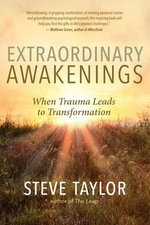
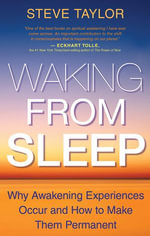
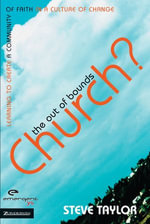
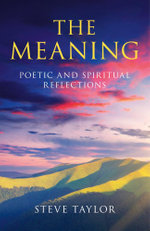
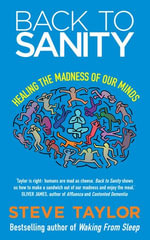
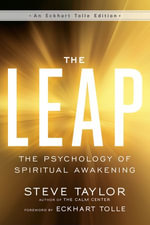
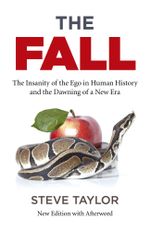
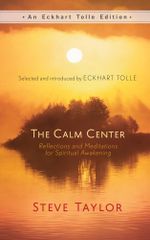

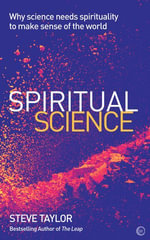
 談笑する司馬遼太郎(左端)と金達寿(左から3人目)=呉文子さん提供
談笑する司馬遼太郎(左端)と金達寿(左から3人目)=呉文子さん提供 金達寿が1950年代に発表した小説『玄海灘』=呉文子さん提供
金達寿が1950年代に発表した小説『玄海灘』=呉文子さん提供 金達寿らが1975年に始めた季刊『三千里』創刊号=呉文子さん提供
金達寿らが1975年に始めた季刊『三千里』創刊号=呉文子さん提供 講演会での呉文子さん(左)=呉さん提供
講演会での呉文子さん(左)=呉さん提供 1987年に発行された季刊『三千里』の最終号=呉文子さん提供
1987年に発行された季刊『三千里』の最終号=呉文子さん提供 1987年にあった季刊『三千里』終刊パーティーに出席した金達寿(左から2人目)=呉文子さん提供
1987年にあった季刊『三千里』終刊パーティーに出席した金達寿(左から2人目)=呉文子さん提供
